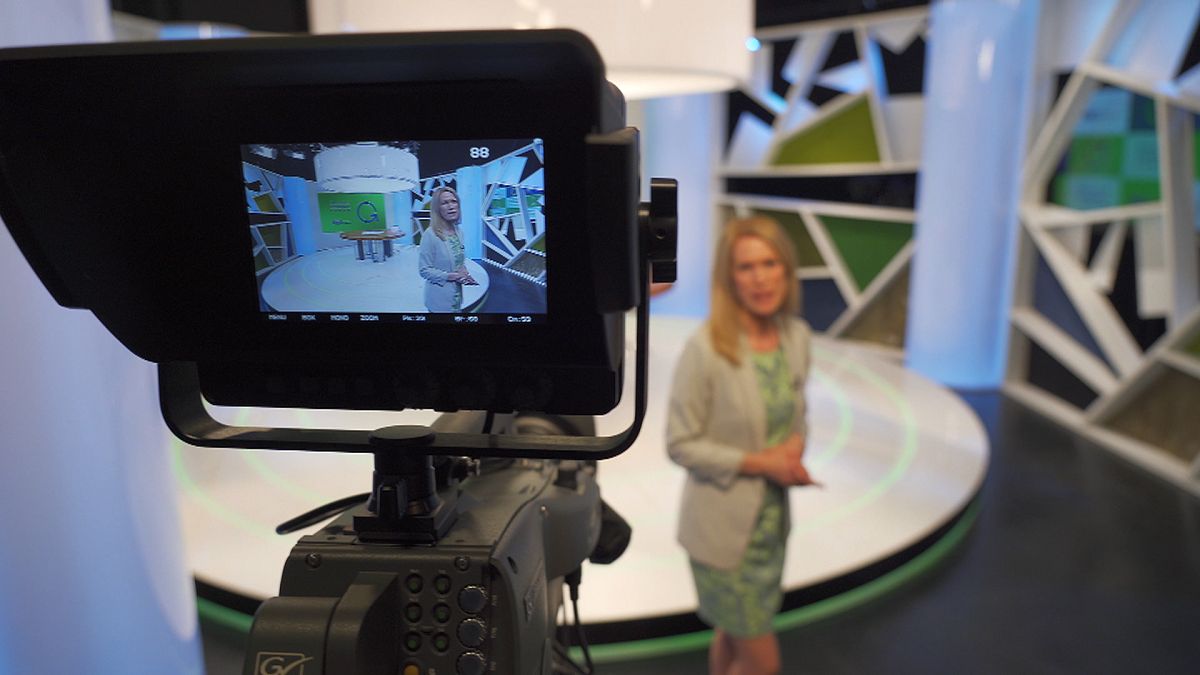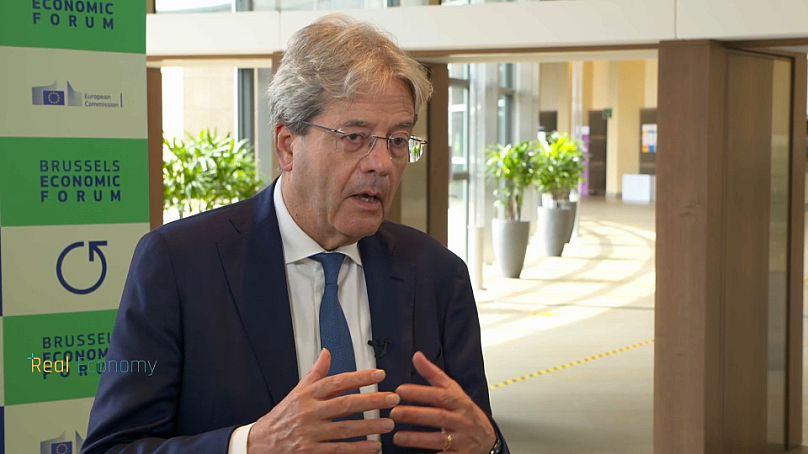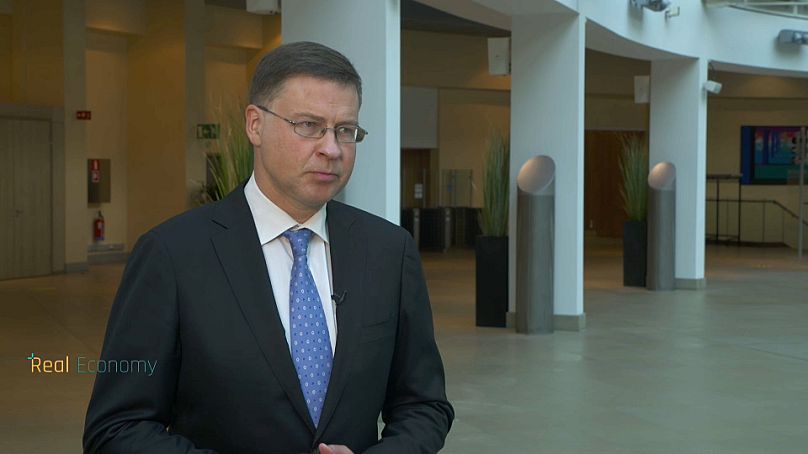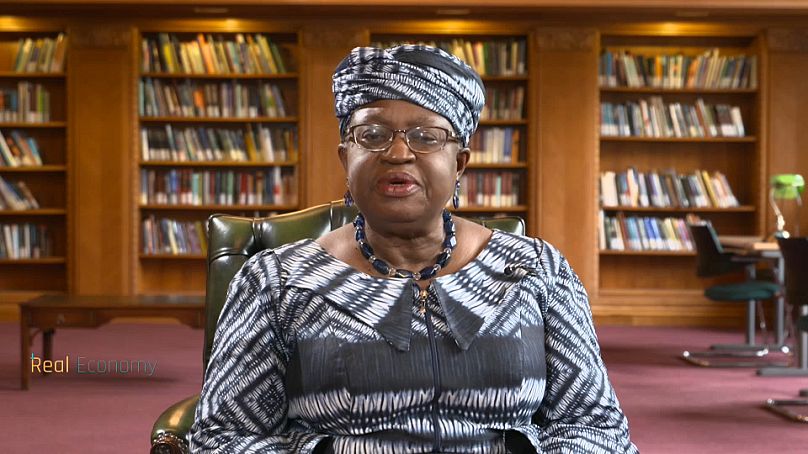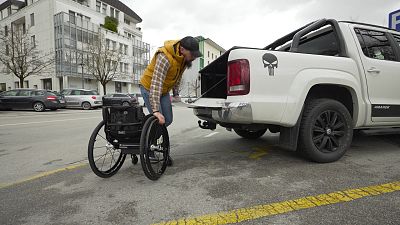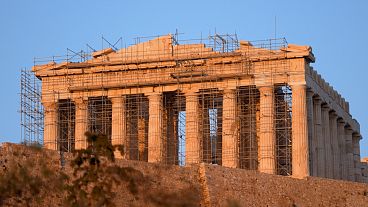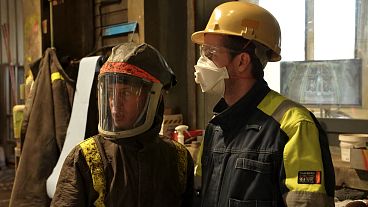The hot topic at the Brussels Economic Forum is how to build Europe’s new economy post-pandemic. We speak to some business owners, EU commissioners and the head of the WTO about vaccines, international trade and the economic outlook.
The Brussels Economic Forum (BEF) is the EU’s flagship economic event held annually at the European Commission.
The BEF is where top decision-makers, academics, civil society and business leaders meet to debate Europe’s most pressing economic challenges. Normally over a thousand people attend the event, but this year it was broadcast live from the studio at the European Commission.
The 2021 edition comes as the latest economic forecast shows the EU's recovery is underway with Europe’s economies expected to return to pre-pandemic levels by the end of 2022.
The main topic of discussion was how does Europe build its new economy as it comes out of the pandemic?
Small business owners are particularly concerned with this and many are worried about what they will do when state support comes to an end.
We caught up with some such business owners to discuss their challenges and we spoke to some of the figures taking part in the BEF to hear what solutions they have.
Staffing difficulties
Greg Yurkovich runs two pizza restaurants in Slovenia’s capital, Ljubljana. He was getting state aid to keep his staff at work. He tells us that the issue for him now is "there's a shortage of employees everywhere in the hospitality industry".
He's also worried about how to "motivate people to become reactivated and to maintain a motivation to grow the economies".
Paolo Gentiloni, the European Commissioner for the Economy confirms that "small businesses were hit severely by this crisis". But he says there are two important tools to combat this that are geared towards small and medium businesses. "One is the European Investment Bank programme, and the other one is what we call Invest EU".
The same rules for all
Dovile Ambrazeviciute owns two flower shops in Vilnius. Like Greg, she was also getting government help to keep things running. She tells us that her biggest concern is that her company will not actually survive because it has "large debts and the economy is quite slow now". She would like to see the European Union use similar rules in all countries and for all businesses no matter where they are located.
According to Paolo Gentiloni, "the crisis was not an equaliser". The Commission knows that "differences among areas of different countries among different incomes increased". However, he expects that the Next Generation EU will resolve this and create "a more inclusive and less unjust society".
Climate change and small businesses
After losing her job, Laura Cardenas Corrales decided to take her graphic design work online. She is doing well, but is concerned about the environment. She wants to know if the EU is going to give small businesses incentives or help to make their systems more eco-friendly.
Valdis Dombrovskis, the European Commission Executive Vice President, says that there will be financing for research and innovation. He also adds that the carbon border adjustment mechanism will make sure "that imports from countries which are less ambitious in terms of emission reduction are subject to this mechanism and does not affect the level playing field".
Looking closer to home
Bengt Westerholm is the CEO of one of Finland's largest privately-owned freight companies called Beweship. In December, the company had most of its freight stuck in China.
Bengt has slightly different concerns from the small business owners. He explains that a lot of his air freight is still down even now. Also, some of the sea freight rates from the far East to Europe are actually fivefold more expensive. He tells us that "a lot of Finnish companies are now actually looking for opportunities to have their suppliers and have their sourcing done in Europe or closer to Europe because now we all see the risk".
The WTO’s Director-General, Ngozi Okonjo-Iweala, was also at the BEF speaking about Europe’s role in international trade. She tells us that "initially when the pandemic started, there were disruptions to international trade".
However, she adds that "what we're seeing is more of a diversification to other countries in Asia, for instance, rather than a big move to bring things back home". She doesn't expect any changes in sourcing and supplying to be overwhelming.
Economic disparities across the globe
Europe's economic forecast is looking positive, but other emerging and developing economies are in a more challenging situation.
According to Okonjo-Iweala, one of the main reasons why we see "this divergence is because of the inequity in access to vaccines". To remedy this, she explains that we have to get vaccines to the countries that don't have access to them. "The EU has been one of the largest exporters of vaccines. Nevertheless, they've had an export restriction in place. I would hope that Europe would remove the restriction", she adds.
Valdis Dombrovskis sees this differently. He tells us that the EU has an export control authorisation and monitoring system. But "generally speaking, it's not restricting vaccine exports", he says. He explains that the EU has exported some 385 million vaccines to over 100 countries, "half of the EU’s vaccine production".
The challenges ahead
Ngozi Okonjo-Iweala fears that due to the extent of the stimulus that many developing countries have implemented, there will be inflationary pressures. Dombrovskis agrees that this needs to be monitored. The WTO Director-General also believes that inclusion, especially of women and those who have been without jobs, and Africa's recovery are things the EU should focus on.
Dombrovskis confirms that inclusion and women in the workplace have been a "long-standing priority within the EU" and that Africa is a priority region in the new trade policy strategy.
COVID-19 has caused countless difficulties across the globe, not just in healthcare. Europe's prospects are starting to look more positive, but continued efforts are still needed to build a new economy as it comes out of the pandemic.
